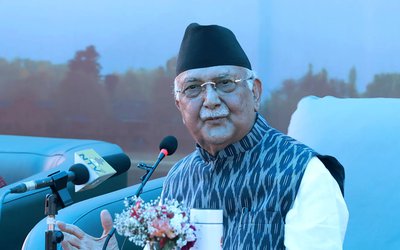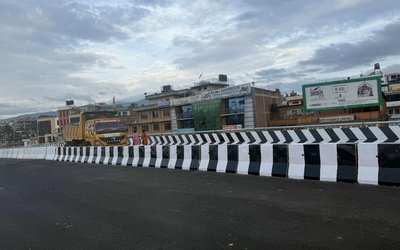More on News






Reproductive rights are legal rights and freedoms relating to reproduction and reproductive health. These are the fundamental rights of individuals. According to the World Health Organization, reproductive rights rest on the recognition of the basic right of all couples and individuals to decide freely and responsibly the number, spacing and timing of their children and to have the information and means to do so, and the right to attain the highest standard of sexual and reproductive health. They also include the right of all to make decisions concerning reproduction free of discrimination, coercion and violence.
The Interim Constitution of Nepal has ensured that every woman shall have the right to reproductive health and reproduction and that every person shall have the right to basic health services free of cost from the state, as provided by law.
Abortion is one of the reproductive rights of women. It should be viewed very cautiously. Simply said, abortion is the termination of pregnancy. Abortion was legalized in Nepal in September 2002 to improve the health status and condition of women. The law allows abortion up to 12 weeks of pregnancy at the request of the woman, up to 18 weeks if the pregnancy results from rape or incest and at any time during pregnancy on the advice of the medical practitioner, if the physical or the mental health or the life of a woman is at risk or the fetus is impaired or has a condition incompatible with life.
Internationally, the Convention on the Elimination of all forms of Discrimination Against Women (CEDAW), recognizes that the states parties shall ensure to women appropriate services in connection with pregnancy, confinement and the post-natal period, granting free services where necessary, as well as adequate nutrition during pregnancy and lactation. Similarly the General Comment No. 14 (2000) of the International Covenant on Economic, Social and Cultural Rights speaks about the women and their right to health. It ensures that in order to eliminate discrimination against women, there is a need to develop and implement a comprehensive national strategy for promoting women's right to health throughout their life span.
In Nepal, the first government-provided abortion services officially began in March 2004 at the Maternity Hospital in Kathmandu. Nepal Government began providing comprehensive abortion care (CAC) services from March 2004 after 18 months of legalization of abortion, when the government issued Safe Abortion Service Procedure in 2004. By February 2008, the government had licensed 188 centers to provide CAC services. As of July 2009, a total of 98 government hospitals and 108 non-government health institutions and private facilities have been accredited for providing CAC services. These centers have offered safe abortion services to more than 229,000 women.
Despite the fact that Nepal has legalized abortion with certain conditions, women are still the victims of maltreatment and unsafe abortion. As such, the case of Ms. Laxmi Devi Dhikt is a glaring example. She is a woman from an extremely poor family from the remote district of Dadeldhura. She lacked adequate education, training and awareness of reproductive matters to feel that reproduction is a basic human right reserved exclusively to a woman. She had already given birth to five children when she suddenly became pregnant for the sixth time. She was unwilling to continue with the pregnancy and she wished to terminate it. After consulting, she learned that government hospitals provide abortion services. She immediately traveled to Dadeldhura Hospital with her husband in order to terminate the pregnancy. The hospital requested a fee of Rs. 1,130.00 for the abortion service. At the time she did not have any money and consequently she was deprived of receiving the abortion services that are guaranteed by law. Thus she filed a writ petition before the Supreme Court of Nepal claiming that her fundamental and legal rights, including the right to reproductive health, right to live with dignity and of self-determination has been infringed since poor women are either bound to retain the undesired pregnancy or are victims of unsafe abortion services.
The Supreme Court in this case has made a remarkable judgment by issuing an order of mandamus in the name of the Ministry of Law, Justice and Parliamentary Affairs directing it to make a separate special law ensuring the safe and accessible right to an abortion, and until the said law is promulgated, the order of Mandamus is issued directing the respondent to launch a special program for making abortion service providers provide information on the provisions of existing law and to establish a fund in the central area in order to make abortion services more accessible and affordable to poor and backward women.
In addition, the court issued an order in the name of the concerned respondents directing them to maintain the privacy of the women who receive abortion services. Let an order be passed directing the respondents to make abortion services more accessible and affordable, to fix the maximum fee permitted to be charged, to provide abortion services free of cost to those who are unable to pay the fee for abortion services, and to launch the necessary programs for enhancing popular awareness of abortion. In addition, an order is passed in the name of the respondents to compensate for the loss that is to be borne economically, mentally and physically by Ms. Laxmi Devi Dhikt, one of the writ petitioners.
Government should provide pre and post abortion contraceptive counseling, discourage unskilled persons to perform unsafe abortion through community support, strengthen the skills of medical practitioners, including staff nurses, to deal with abortion complications and menstrual regulations, and improve existing infrastructure and resources of the medical institutions and hospitals to deal with clients requesting for abortion services. In addition, the government must educate the public and health care providers about Nepal’s abortion law. To sum up, the decision made by the Supreme Court is a remarkable judgment that addresses the disparity existing between a legal right and the ability of all women – not just the privileged to exercise that right.(Reena is a lawyer)







